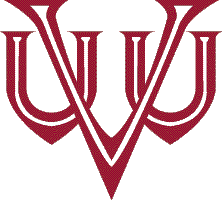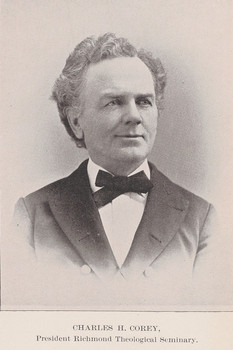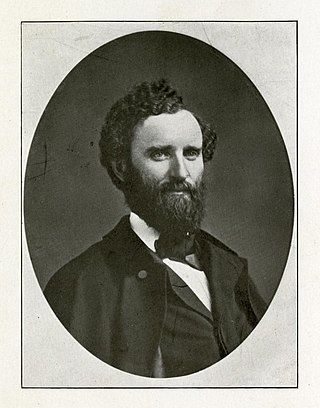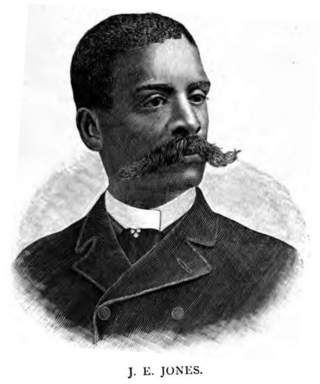
Virginia Union University is a private historically black Baptist university in Richmond, Virginia. It is affiliated with the American Baptist Churches USA.

Union Presbyterian Seminary is a Presbyterian seminary in Richmond, Virginia. It also has a non-residential campus in Charlotte, North Carolina and an online blended learning program.

Francis Wayland, was an American Baptist minister, educator and economist. He was president of Brown University and pastor of the First Baptist Church in America in Providence, Rhode Island. In Washington, D.C., Wayland Seminary was established in 1867, primarily to educate former slaves, and was named in his honor.
The Washington Theological Consortium is an ecumenical organization of Christian theological schools and interfaith partners located in Washington, DC, Virginia, Maryland, and Pennsylvania. Members cooperate to deepen ecumenical unity in theological education and to broaden interfaith dialogue and understanding and to prepare both clergy and laity with skills they need to minister in a diverse church and society. The Consortium is one of the most diverse of its kind in the nation, as it includes Roman and Byzantine Catholic traditions, mainline Protestants, Evangelicals, and Historic Black Divinity schools; with partners in spiritual formation, Jewish, and Islamic education.
Simmons College of Kentucky is a private historically black college in Louisville, Kentucky. Founded in 1879, it is the nation's 107th HBCU and is accredited by the Association for Biblical Higher Education.
The American Baptist Home Mission Society is a Christian missionary society. Its main predecessor the Home Mission Society was established in New York City in 1832 to operate in the American frontier, with the stated mission "to preach the Gospel, establish churches and give support and ministry to the unchurched and destitute." In the 19th century, the Society was related to the Triennial Convention of Baptists. Today it is part of that Convention's successor, the American Baptist Churches, USA, and is the successor by merger of several 19th century Baptist organizations related to missions and education, including publications (1824), women (1877), and education (1888).
Wayland Seminary was the Washington, D.C. school of the National Theological Institute. The institute was established beginning in 1865 by the American Baptist Home Mission Society (ABHMS). At first designed primarily for providing education and training for African-American freedmen to enter into the ministry, it expanded its offerings to meet the educational demands of the former enslaved population. Just before the end of the 19th century it was merged with its sister institution, the Richmond Theological Seminary, to form the current Virginia Union University in Richmond.

Beulah Baptist Church was established in 1863 in an African-American neighborhood in Alexandria, Virginia, United States. The church was also the first black church founded in Alexandria after occupation by Union troops in 1861. Rev. Clem Robinson, graduate of Ashmun Institute in Pennsylvania, heard the call to educate and preach to slaves that lived in or fled to areas occupied by Union troops, so he came to Alexandria, VA. With support from the American Baptist Free Mission Society of New York and the (Northern) American Baptist Home Mission Society, he worked with his wife, with Miss Amanda Borden, and with Rev. George Washington Parker to found several schools for escaped slaves, including "The First Select Colored School," which served over 700 students in its first year. Their schools, which included a night school for adults and a Normal and Theological Institute for those with some education, preceded the federal schools, set up by the Freedman's Bureau, by many months. The Beulah Baptist Church was founded the next year, 1863, and remains a vital African American congregation to this day. Currently, it is under the able leadership of Rev. Prof. Quardricos B. Driskell

Tiberius Gracchus Jones was an American Baptist pastor and the president of Richmond College from 1866 to 1869.
Robert Ryland was the first president of Richmond College, serving from 1840 to 1866. Prior to the establishment of the college, he had served as the only superintendent of its predecessor institution, the Virginia Baptist Seminary, since 1832.

Charles Henry Corey (1834-1899), was a Canadian Baptist clergyman.

Lumpkin's Jail, also known as "the Devil's half acre", was a holding facility, or slave jail, located in Richmond, Virginia, just three blocks from the state capitol building. More than five dozen firms traded in enslaved human beings within blocks of Richmond's Wall Street between 14th and 18th Streets between the 1830s and the end of the American Civil War. Its final and most notorious owner, Robert Lumpkin, bought and sold slaves throughout the South for well over twenty years, and Lumpkin's Jail became Richmond's largest slave-holding facility.

James B. Simmons, was a minister and abolitionist during the Antebellum period. He served as a Baptist minister in Providence, Rhode Island; Indianapolis, Indiana; Philadelphia, Pennsylvania; and New York City.

Samuel DeWitt Proctor was an African-American minister, educator, and humanitarian. He was active in the Civil Rights Movement and is perhaps best known as a mentor and friend of Martin Luther King Jr.

Nathaniel Colver was an American Baptist clergyman.

George Addison Baxter was an educator, American university administrator, theologian and author. He served as President of Washington and Lee University from 1799 to 1829 and Hampden–Sydney College from 1835 until his death.

Joseph Endom Jones was a Baptist minister and professor at the Richmond Theological Seminary and Virginia Union University in Richmond, Virginia from 1876 to 1922. He was a major leader in the Baptist Church among blacks in Virginia. His son, Eugene Kinckle Jones, was a leader in the National Urban League.
Rev. Dr. Robert Simon Laws, a formerly enslaved person and Howard University graduate, founded two African American Baptist churches in the 19th century that have active congregations in the 21st century.











